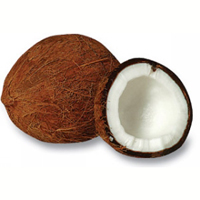Contents
Uses
- Coloring products (compatible with ammoniacal media, dyes, and cationic agents)
- Shampoos (anti-dandruff, anti-seborrheac, conditioners, frequent use, etc…)
- Straightening products (compatible with sodium / potassium hydroxides)
- Permanent wave products (compatible with fixers and reducers)
- Dermatological liquid soaps
- Sensitive skin cleansers
- Shaving foams
- Bubble baths
- Shower gels
- Cleansers
- Bath oils
- Wipes
Benefits
Works as a surfactant, foaming agent, conditioner and emulsifier. It helps increase the foaming capacity of a solution, and is particularly useful in hair care products, in which it has the ability to smooth out the hair structure and increase manageability.
As an anionic surfactant, it mildly cleanses the skin/hair by helping water to mix with oil and dirt so that they can be rinsed off.
As an emulsifier, it keeps the oil and water parts of an emulsion from separating, and it also enhances the properties of primary cleansing and moisturizing agents contained in a product.
This ingredient is compatible with all skin types and gentle enough to be used in baby products.
You may find it in a variety of cosmetic products such as body wash, shampoo, cleanser, conditioner, hair dye, liquid hand soap, exfoliant/scrub, acne treatment, facial moisturizer and baby soap.
Cautions
Coco-Glucoside is generally considered to be safe.
Interactions
There is not enough information on safety cautions and interactions, as the ingredient is believed to be safe and tested.
Other Names
n/a
References
Source: Ingredients to Die For, https://www.ingredientstodiefor.com/item/Coco_Glucoside/1479/
Truth in Aging, https://www.truthinaging.com/ingredients/coco-glucoside
Beautiful with Brains, http://beautifulwithbrains.com/2012/07/28/know-your-ingredients-coco-glucoside/

